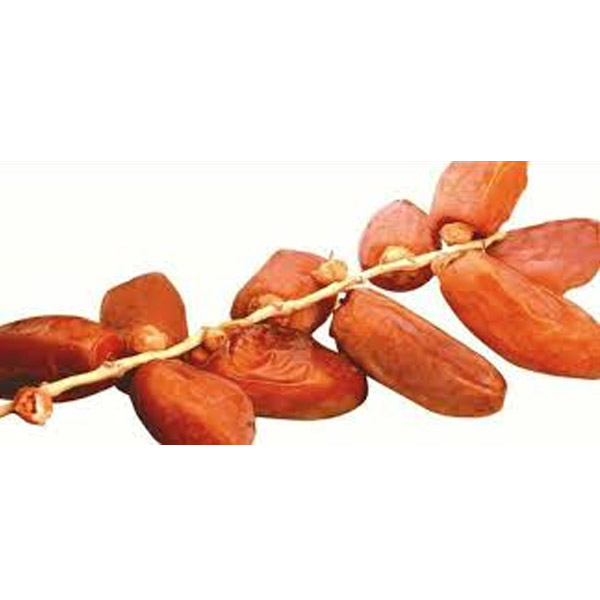
Kurma Bertangkai: Cultural and Religious Factors Influencing Consumption
Introduction:
Kurma Bertangkai, a traditional style of presenting dates, holds a special place in the hearts and palates of date enthusiasts in Malaysia and the Middle East. In this blog post, we will delve into the world of Kurma Bertangkai, exploring its cultural and religious significance and how these factors influence the consumption and preferences for these dates. Join us as we unravel the enchantment of this date type and discover its role in enhancing the culinary experience in Malaysia and the Middle East.
1. Kurma Bertangkai: A Traditional Presentation
This date variety refers to the practice of presenting dates in a decorative, string-like arrangement. The dates are carefully threaded onto a string or skewer, creating an elegant and visually appealing display of this beloved fruit. This traditional presentation style is often seen during festive occasions, cultural celebrations, and religious events.
2. Cultural Factors Influencing Consumption and Preferences
Celebratory Tradition
In both Malaysia and the Middle East, dates hold deep cultural significance and are an integral part of traditional celebrations and gatherings. The dates, with their visually striking presentation, add a touch of elegance and grandeur to these festivities, making it a preferred choice for special occasions.
Aesthetics and Visual Appeal
The art of Kurma Bertangkai lies not only in its cultural symbolism but also in its visual appeal. The decorative arrangement of dates creates a feast for the eyes, enhancing the overall aesthetic of the dining table or event setting. The intricate patterns and vibrant colors of the dates captivate and entice individuals, making them more inclined to consume and appreciate the fruit.
3. Religious Factors Influencing Consumption and Preferences
Islamic Dietary Traditions
In Islam, dates hold religious significance and are mentioned in the Quran as a blessed fruit. The practice of breaking fast with dates during Ramadan is deeply rooted in Islamic traditions. The dates, with their elegant presentation, add a sense of reverence and respect to the act of consuming dates during this holy month.
Sunnah and Prophetic Tradition
The consumption of dates is also associated with the Sunnah (the teachings and practices of the Prophet Muhammad, peace be upon him). The Prophet Muhammad (pbuh) is reported to have consumed dates and recommended their consumption for various health benefits. This variety, with its emphasis on the presentation and appreciation of dates, reflects the reverence for the Prophetic tradition and encourages individuals to follow his teachings.
Conclusion
Kurma Bertangkai, with its traditional presentation and cultural and religious significance, holds a special place in the hearts and traditions of Malaysia and the Middle East. The aesthetic appeal, celebratory tradition, and religious symbolism associated with this date variety influence the consumption and preferences for these dates, making them a cherished and sought-after treat during festive occasions and religious events. Embrace the enchantment of these dates and savor the visual and culinary delights it brings to your cultural celebrations and religious gatherings.
Key Highlights
– Kurma Bertangkai is a traditional style of presenting dates in Malaysia and the Middle East.
– Cultural factors, such as celebratory traditions and visual appeal, influence the consumption and preferences for these dates.
– Religious factors, including Islamic dietary traditions and the Prophetic tradition, further enhance their significance for consumption and appreciation.
– They add elegance and reverence to cultural celebrations and religious events.